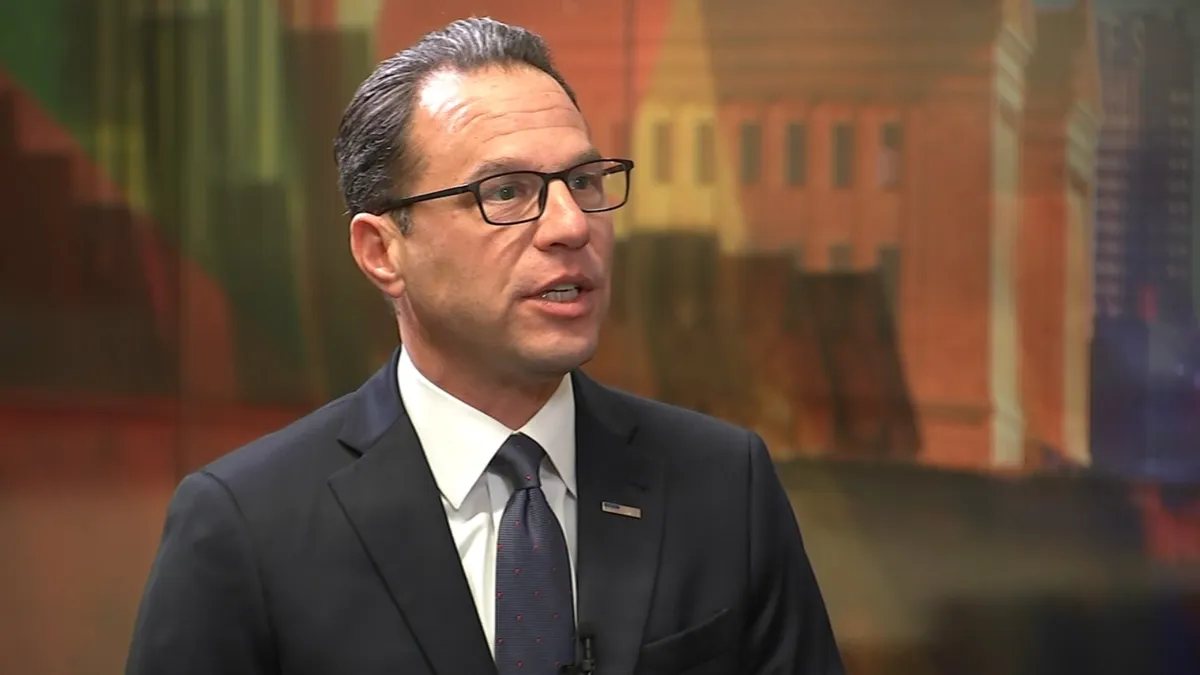
In a significant political shift, Democrats dominated the first major Election Day since President Donald Trump returned to the White House. This outcome has sparked an ongoing debate regarding the future of the Democratic Party. Early indications suggest that the economy could become a critical issue for Trump's GOP as they head into the high-stakes midterm elections next year.
The electoral success of Democrats was not confined to traditionally blue states like New York and California; it extended into pivotal swing states such as Georgia, Pennsylvania, and Virginia. In Pennsylvania, Democrats achieved a remarkable sweep, winning not only three state Supreme Court races but also securing every county seat in key swing areas like Bucks County and Erie County. Notably, Bucks County elected its first Democratic district attorney, marking a significant milestone for the party.
Moreover, Democrats secured key victories in local school board races and county judgeships, further demonstrating their influence in the state's political landscape. Pennsylvania Governor Josh Shapiro is now emerging as a prominent figure in the national conversation surrounding the Democratic Party, with some speculating about his potential candidacy for president in 2028.
In a recent interview with Action News' Brian Taff, Shapiro stated, "I think there are two takeaways. One is that it was a clear message to Donald Trump that folks are tired of the chaos and extremism. The second storyline is that voters want leaders focused on their needs and committed to delivering results." This sentiment resonated throughout various races, including the Luzerne County Council race and the gubernatorial contests in Virginia and New Jersey.
Shapiro emphasized that candidates across these races effectively addressed issues that mattered to their communities, proposing plans to lower costs and tackle unique local challenges. Voters expressed their discontent with Trump's policies, highlighting their frustrations with rising prices, chaos in their neighborhoods, and concerns about freedom and democracy.
Despite Trump's physical absence from the ballot, his policies—such as the controversial budget bill and significant cuts to the federal workforce—remained central to discussions in Virginia, New Jersey, and New York City's mayoral race. Republican candidates in these regions did not distance themselves from Trump or his agenda, which ultimately proved detrimental to their campaigns.
In response to the election results, Trump took to social media, attributing the Republican losses to two key factors: "Trump wasn't on the ballot, and shutdown." These comments reflect his ongoing struggle to connect with voters who are increasingly frustrated with economic issues.
Preliminary exit poll data from ABC News revealed that a significant majority of voters are deeply concerned about the cost of living. Nearly half of Virginia voters identified the economy as the most pressing issue facing the state. In New Jersey, six out of ten voters reported negative views regarding the state's economic performance, while over half of New York City voters ranked cost of living as their primary concern.
Candidates like Abigail Spanberger in Virginia, New Jersey Governor-elect Mikie Sherrill, and Zohran Mamdani in New York City focused their campaigns on affordability. While each candidate proposed different strategies to lower costs—Mamdani notably advocating for higher taxes on the wealthiest—voters were drawn to their messages of change.
The trends observed in this election mirror previous elections where many Democratic-led states shifted toward Republican candidates. A substantial portion of voters expressed anger and dissatisfaction with the current state of affairs, favoring candidates who promised change and solutions to pressing issues. New Jersey's history shows that the state has never elected a governor from the same party for three consecutive cycles, indicating a potential shift in voter sentiment as the midterms approach.
As the political landscape evolves, the implications of these election results will undoubtedly shape the strategies of both parties heading into the crucial midterm elections.